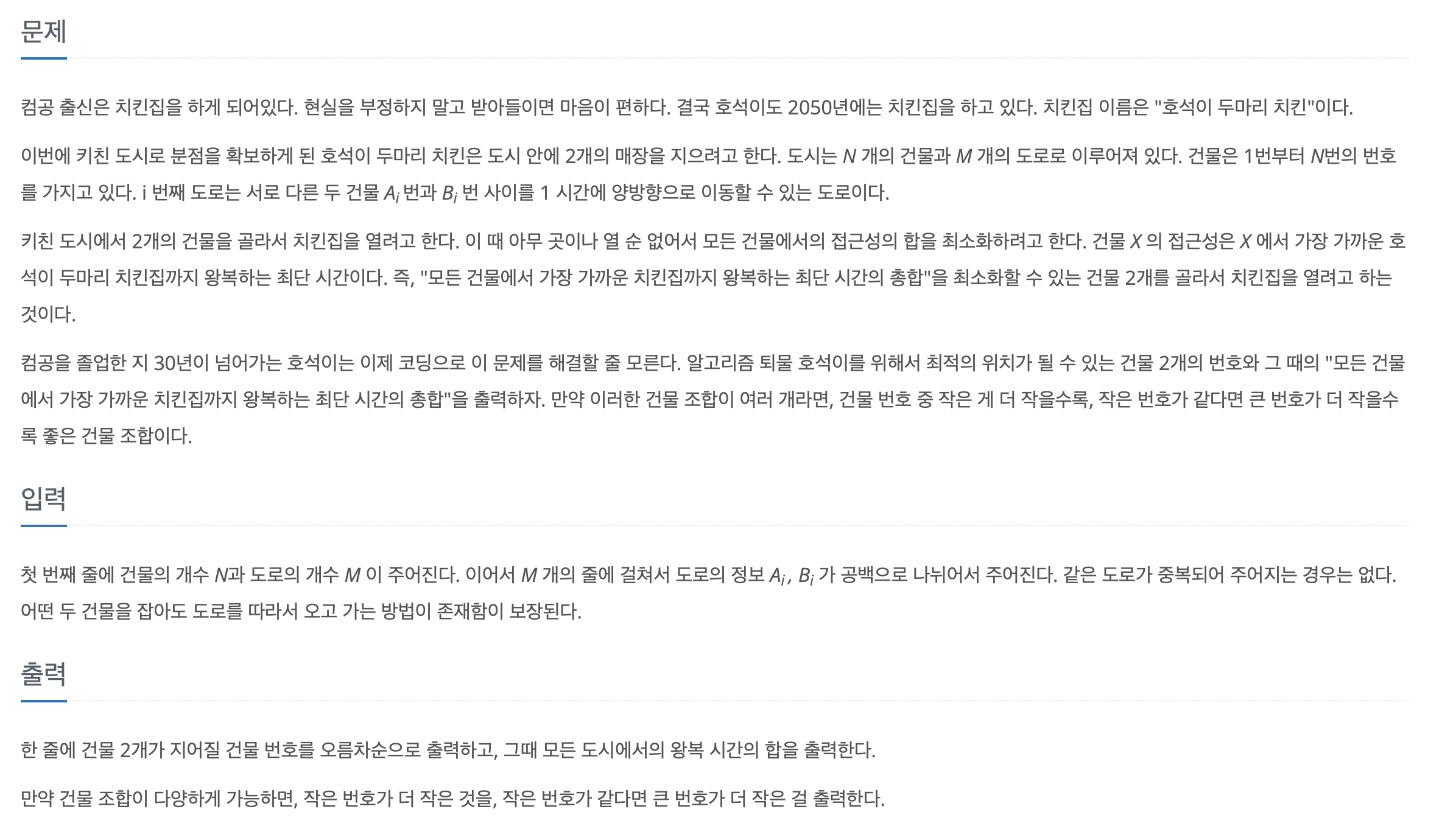문제

코드
#include <iostream>
#include <algorithm>
#include <vector>
#define INF 987654321
using namespace std;
int N, M;
int map[101][101], dist[101][101];
bool comp(vector<int>& a, vector<int>& b){
if (a[2] == b[2]){
if (a[0] == b[0]) return a[1] < b[1];
return a[0] < b[0];
}
return a[2] < b[2];
}
int main(void){
cin.tie(0);
ios_base::sync_with_stdio(false);
cin >> N >> M;
int x, y;
for (int i = 0; i < M; i++){
cin >> x >> y;
map[x][y] = map[y][x] = 1;
}
for (int i = 1; i <= N; i++){
for (int j = 1; j <= N; j++){
if (i == j) continue;
dist[i][j] = map[i][j] == 1 ? 1 : INF;
}
}
for (int k = 1; k <= N; k++){
for (int i = 1; i <= N; i++){
for (int j = 1; j <= N; j++){
dist[i][j] = min(dist[i][j], dist[i][k] + dist[k][j]);
}
}
}
vector< vector<int> > v;
for (int i = 1; i <= N; i++){
for (int j = i+1; j <= N; j++){
int d = 0;
for (int k = 1; k <= N; k++){
d += min(dist[k][i], dist[k][j]) * 2;
}
vector<int> temp(3,0);
temp[0] = i; temp[1] = j; temp[2] = d;
v.push_back(temp);
}
}
sort(v.begin(), v.end(), comp);
cout << v[0][0] << " " << v[0][1] << " " << v[0][2];
return 0;
}접근
일단 N의 최대 값이 100 이고 특정 도시를 거쳐 다른 도시로 이동할 때의 최소 값을 구해야 하기 때문에 플로이드-와샬 알고리즘이 떠올랐다.
1) 먼저 주어진 도로 정보를 이용하여 갈 수 있는 곳과 아닌 곳을 dist 배열에 표시해주었다. (플로이드-와샬)
2) 그 정보를 가지고 모든 경우를 살펴보며 거리의 최소 값을 찾아 건물 정보와 함께 배열에 저장하였다.
3) 배열에 저장한 후에 원하는 결과가 나올 수 있게 comp 함수를 작성해 주었다. 결과적으로 답은 배열의 맨 앞에 위치하게 된다.
